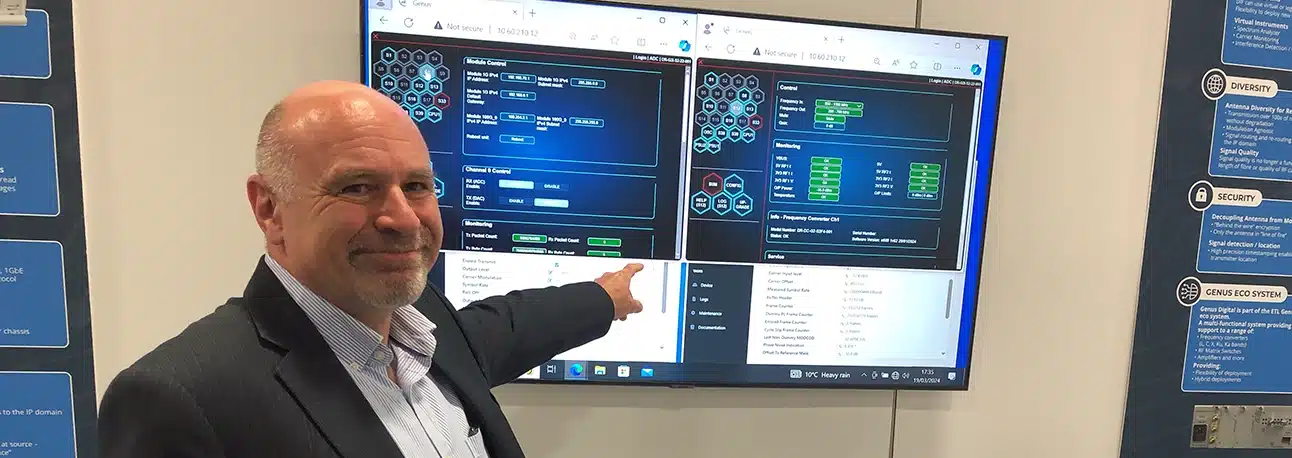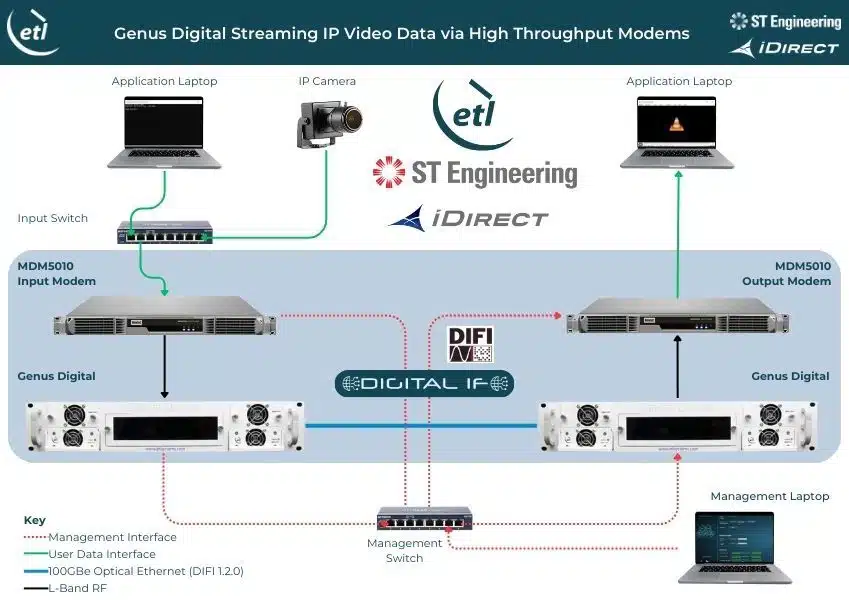Over the last two years along with other industry players, we have spearheaded the work on standards through our membership of the DIFI (Digital Intermediate Frequency Interoperability) consortium. The mission of the DIFI Consortium is to enable the digital transformation of space, satellite, and related industries by providing a simple, open, interoperable Digital IF/RF standard that replaces the natural interoperability of analog IF signals and helps prevent vendor lock-in. Standards are a critical part of ground segment evolution. Converting hardware into software where it is installed and managed remotely via third-party data centers, will give satellite operators more flexibility over their networks and speed up how quickly they can respond to customer demands.
We have demonstrated the progress of the DIFI interoperability standard with important Proof of Concepts. At Satellite 2023, we undertook a demo that showcased the conversion of analog signals to digital signals, between a block upconverter (BUC) and Modem using the DIFI 1.1 Standard. In October 2023, we participated in the first DIFI Plugfest where we were able to exchange DIFI streams between us and other vendors. And now at Satellite 2024 in Washington, DC, our consortium partner ETL is showcasing the DIFI 1.2 standard live pairing their Genus Digitizer and our MDM5010 modem.
Why is the DIFI standard needed?
Known as Digital IF, this capability introduces several benefits to satellite operators, enabling the distribution of RF signals from any source to any destination with a consistent signal quality, offering unprecedented flexibility. This advancement facilitates Virtual Network Functions (VNFs), transforming modems from hardware appliances into cloud-based software, allowing for a shift from capital to operational expenditure models for customers with costs proportional to consumption.
“The satcom industry is transitioning from analog RF to digital IF technology, marking a pivotal shift in connectivity demands worldwide. At ETL Systems, we are bridging the gap between digital and RF, through the development of Genus Digital.”
“We appreciate ST Engineering iDirect’s support in showcasing the capabilities of Genus Digital at Satellite 2024. This partnership reflects our shared commitment to driving innovation in the satellite industry and underscores our mission to empower our customers with cutting-edge solutions,” said Simon Swift, ETL Systems Engineering Director and Chair of the DIFI Specification Working Group.
By leveraging the DIFI standard, the management of the radio signals at the teleport will be simplified and will introduce improved flexibility, when routing the signal to and from a growing number of antennas at the teleport. The standardization will result in flexible delivery over IP connectivity and improved and simplified maintenance. Standardizing on IP workflows, all the way to the antenna, will result in uniformity of how these IP flows are managed and operated, including a significant reduction of RF complexity at the teleport.
Looking at the bigger picture there are fundamental changes happening within the satellite industry brought about by the advent of multi-orbit constellations, 5G and demand for cloud-based services. This is a complex step change that will see the industry move from traditional analog to IP, away from hardware and towards software-based functions. This transformation will open up broad avenues of opportunity for the industry, enabling access to cloud capabilities that will enable satellite operators to maximize their strategic investments.
Fostering collaboration
The task of developing and promoting an open standard for the industry is a complex one and it won’t happen overnight. It takes hard work, dedication and teamwork from many different areas of the ecosystem to bring about important changes that will open the door to a world of opportunity for our customers.
At ST Engineering iDirect, we are committed to standards-based innovation and industry collaboration that will eventually lead to the goal of interoperability.
Watch the Demo of DIFI 1.2 Interoperability

